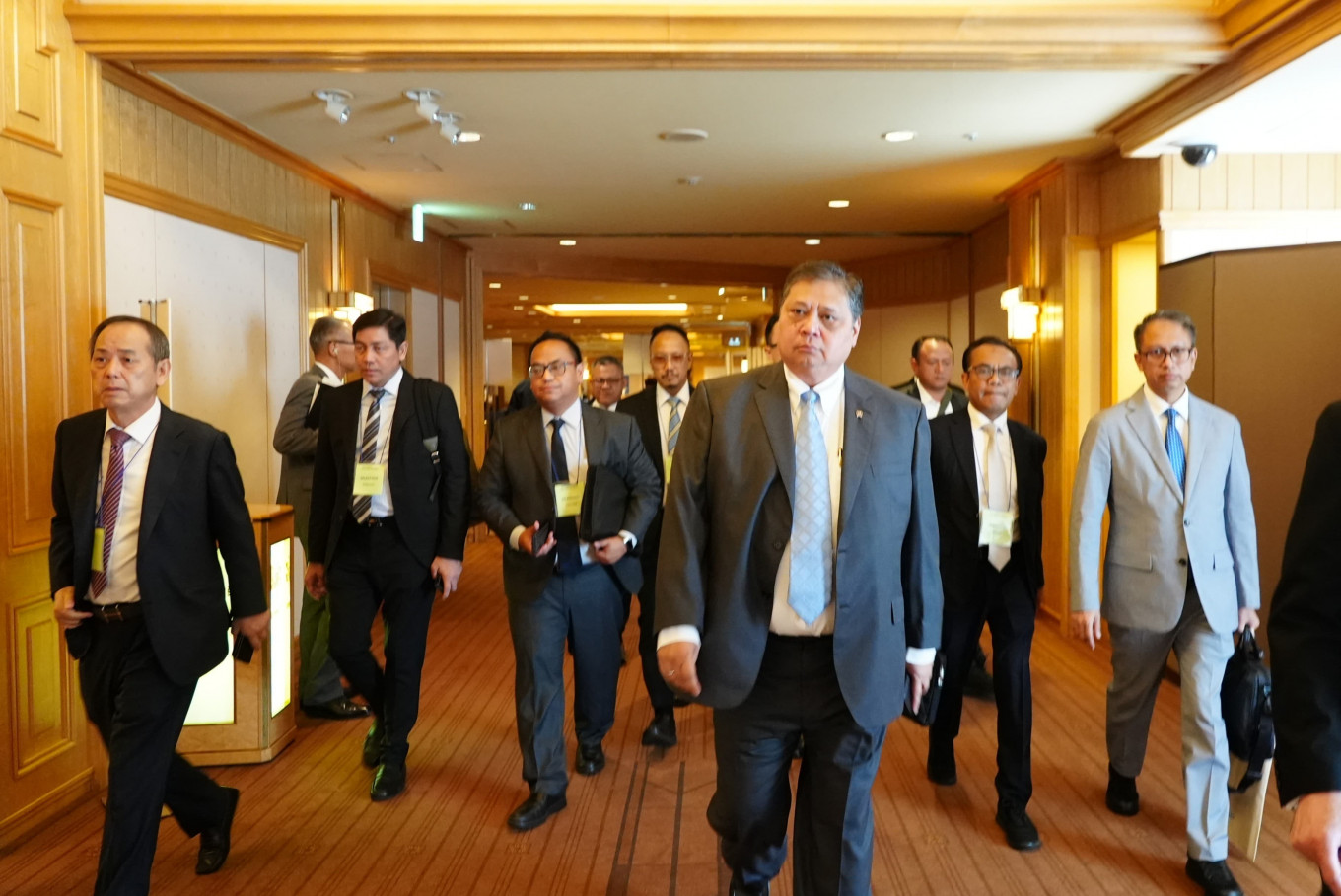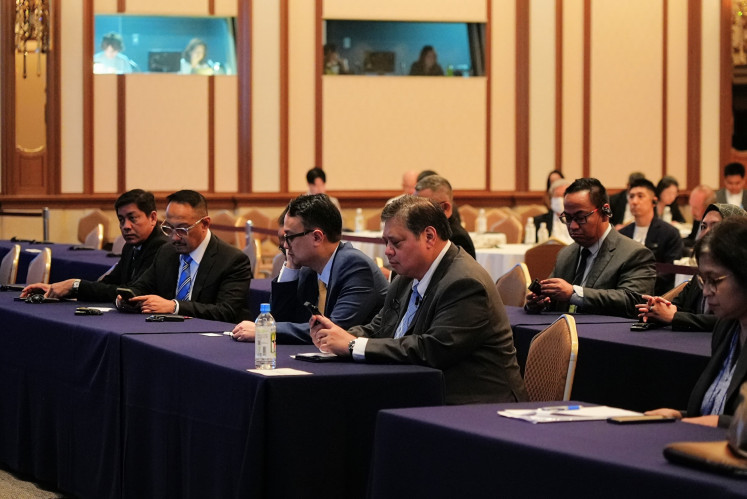Popular Reads
Top Results
Can't find what you're looking for?
View all search resultsPopular Reads
Top Results
Can't find what you're looking for?
View all search resultsMinister Airlangga Showcases Indonesia's Economic Success at Nikkei Forum 2024
Change text size
Gift Premium Articles
to Anyone
C
ontinuing the series of events at the Nikkei Forum 2024 in Tokyo, Coordinating Minister Airlangga Hartarto, representing President Joko Widodo, spoke before global leaders, economic experts, and academics from the Asia-Pacific region. During the event themed "Future of Asia," Minister Airlangga detailed Indonesia's efforts in maintaining economic resilience amid global uncertainties and highlighted various investment opportunities in Indonesia.
"During the unprecedented Covid-19 pandemic, Indonesia's economy managed to become one of the best-performing in the world. Since the second quarter of 2021, Indonesia's economy has consistently grown at an average annual rate of around 5%," said Minister Airlangga.
Indonesia's economic growth in the first quarter of 2024 reached 5.11% year-on-year (yoy), with an inflation rate of 3.00% yoy in April 2024, staying within the target range of 2.5±1%. Furthermore, Indonesia's GDP per capita has been on an upward trend since the pandemic, with a target per capita income of USD 5,500 this year.
"Indonesia promotes stable economic growth through political and social stability. This creates a highly favorable condition for investors and business actors," stated Minister Airlangga.
The Indonesian government is currently undergoing a gradual transition to ensure the sustainability of various programs. The economic transformation agenda set by President Joko Widodo will continue to achieve the Vision of Golden Indonesia 2045. The economic transformation policy aims to avoid the middle-income trap over the next 20 years through two scenarios: Transformative, with a 6% annual growth rate to escape the middle-income trap by 2041, and Optimistic, with a 7% annual growth rate to escape the trap by 2038.
Besides economic transformation policies, structural reforms will also be ongoing. The government is committed to maintaining an investment-friendly climate by simplifying business procedures, notably through the full implementation of the Omnibus Law on Job Creation.
"To support structural reforms, the Indonesian government is in the process of becoming an OECD member. By adopting OECD standards, we aim to achieve a GDP per capita target of USD 30,300 by 2045," added Minister Airlangga.
Additionally, the Indonesian government continues to combine traditional growth drivers such as infrastructure development, food security, and international cooperation with new growth engines driven by massive industrialization, digitalization, and energy transition. This combination will be supported by strengthening economic resilience and empowerment.
International cooperation remains a priority for the Indonesian government, including accession to the OECD. Indonesia hopes to become a full OECD member within three years. Policy reforms based on OECD standards will not only enhance policy predictability and transparency but also allow Indonesia to help set global economic standards, making it a benchmark for sustainable and quality investments.
On this occasion, Minister Airlangga also highlighted Indonesia's active involvement in the Comprehensive and Progressive Agreement for Trans-Pacific Partnership (CPTPP) and the Indo-Pacific Economic Framework (IPEF) to expand markets and boost investment.
In the final part of his presentation, Minister Airlangga discussed downstream policies to create added value. Indonesia has played a significant role in supplying critical minerals for electric vehicle batteries, benefiting the automotive and renewable energy industries. Indonesia's nickel, copper, bauxite, and tin are integral to renewable energy industries, aerospace, and even defense industries.
"Regarding the energy transition, Indonesia, as one of the initiators of the Asia Zero Emission Community (AZEC), emphasizes the importance of inclusive funding for decarbonization cooperation and low-carbon technology transfer. Currently, there are at least 12 real cooperation projects under AZEC, with three already in the implementation stage," concluded Minister Airlangga.
This article was published in collaboration with Coordinating Ministry for Economic Affairs Republic of Indonesia












